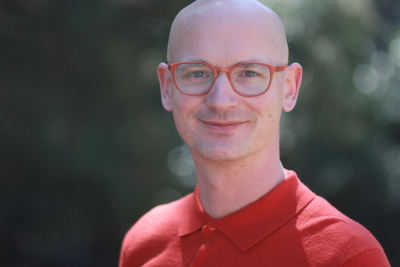Till Düppe Examines the Personal to Construct the "Lived Experiences" of Economists

Here’s one way to begin a paper: In 1954, the French-born economist Gerard Debreu, along with Kenneth Arrow, published an article that proved that general equilibrium exists. This and other works, as one economist said, “profoundly changed the way economics is practiced.” Indeed, in 1983, Debreu was awarded the Nobel Prize “for having incorporated new analytical methods into economic theory and for his rigorous reformulation of the theory of general equilibrium.”
Here’s another way to begin: When he was a small boy, the French-born economist Gerard Debreu was present in the house when his little sister burned to death in her cradle. When he was eight years old, his father committed suicide. A year later, his mother died.
Did the personal tragedies of one affect the professional triumphs of the other? Till Düppe believes so. One of his first papers began exactly this way. Till, who is visiting the HOPE Center this spring, is a historian of economics who has increasingly sought to capture and understand the “lived experience” of the people he writes about. His interests have led him to go beyond the formal publications and professional activities that form the basis of traditional histories of economics—and that perhaps too often constitute the way we think about famous scholars and scientists.
“Yes, Debreu wrote elegant proofs in economic theory. But he also lost both parents at a young age. And with Paris occupied, during the war he was forced to pursue an improvised postsecondary education. Those things matter too when we ask what these proofs meant to him personally,” Till says.
Not surprisingly, a good part of such personal meaning involves an economist’s family relationships. “A spouse, siblings, children—family members and their impressions and recollections bring me closer to the economists I study,” says Till, a professor of economics at the Université du Québec à Montréal. Above all, Till is interested in what an economist’s work—the questions asked, the means by which they might be answered—meant to him or her. “How did someone like Debreu end up doing the work he did? How did his intellectual values take shape in his particular historical situation?”
Till began his research career slightly differently, “more interested in evaluating the discipline as a whole —notably unfavorably.” Take his first book, The Making of the Economy: A Phenomenology of Economic Science, published in 2011. There, he criticized the profession’s “intellectual reticence.”
“I reacted to the way economists steered clear of conflict and controversy and how they avoided saying anything committal about the important issues of the day.”
Then, around 2010, Till connected with E. Roy Weintraub, who, like Till, was working on Debreu and mathematical economics generally. They soon agreed to collaborate. The result was Finding Equilibrium: Arrow, Debreu, McKenzie and the Problem of Scientific Credit, which won the Joseph Spengler Book Award given by the History of Economics Society.
“From Roy I learned the ease of letting go of this belief that I had to criticize economics. What I learned instead is that my job was to understand it historically and how people end up doing what they do.”
Till’s interest in the lived experience has recently led him to take seriously the psychological makeup of economists. He has just drafted a paper on the post-Keynesian economist Sidney Weintraub—the father of E. Roy Weintraub—that attempts to understand Sidney’s career and professional behavior as manifestations of his troubled personality structure.
In 2023, Till published a book titled The Closed World of East German Economists: Hopes and Defeats of a Generation, a book that, true to Till’s own historiographical values, seeks to understand how East German economists saw themselves and the work that they did.
Till, who was born and raised in southwestern Germany, completed his PhD in the philosophy of economics at Erasmus University Rotterdam. His advisor was Arjo Klamer, who did his PhD at Duke under E. Roy Weintraub and Craufurd Goodwin.
“So, I’m an intellectual grandchild of the HOPE Center,” Till says proudly.
Till will continue his sabbatical in Europe later this spring before returning to Montreal.